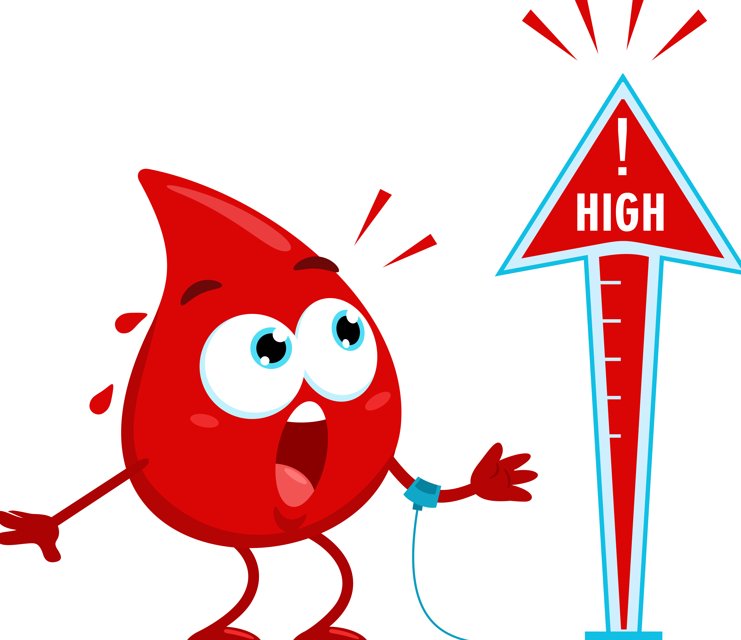Mastering Cholesterol: Your Guide to Heart Health
Cholesterol, a vital lipid molecule, is often misunderstood due to its association with cardiovascular diseases. However, cholesterol is indispensable for various physiological functions in the body. This comprehensive guide aims to provide a detailed understanding of cholesterol, covering its importance, causes of high or low levels, diagnosis, and treatment options.

Understanding Cholesterol
Cholesterol is a lipid molecule essential for building cell membranes, synthesizing hormones (such as cortisol, estrogen, and testosterone), and producing bile acids for digestion. It exists in two primary forms: low-density lipoprotein (LDL) and high-density lipoprotein (HDL). LDL cholesterol is commonly referred to as "bad" cholesterol because it can accumulate in the arteries, leading to atherosclerosis. Conversely, HDL cholesterol, known as "good" cholesterol, transports excess cholesterol from the bloodstream to the liver for elimination.
Importance of Cholesterol
Cholesterol plays a crucial role in maintaining cell structure and function. It serves as a precursor for the synthesis of steroid hormones and bile acids, facilitating fat digestion. While excessive LDL cholesterol can contribute to plaque buildup in arteries, HDL cholesterol helps prevent this by removing excess cholesterol from the bloodstream, reducing the risk of cardiovascular diseases.
Causes of High Cholesterol
Several factors contribute to elevated cholesterol levels, including:
- Dietary Habits: Consuming foods rich in saturated fats, trans fats, and cholesterol, such as red meat, processed foods, and full-fat dairy products, can increase LDL cholesterol levels.
- Lack of Physical Activity: Sedentary lifestyles can lower HDL cholesterol levels and contribute to weight gain, raising LDL cholesterol.
- Obesity and Body Composition: Excess body weight, particularly abdominal obesity, is associated with elevated LDL cholesterol and reduced HDL cholesterol levels.
- Smoking and Tobacco Use: Smoking damages blood vessels, promotes inflammation, and lowers HDL cholesterol levels.
- Genetic Predisposition: Familial hypercholesterolemia and other genetic disorders can lead to high cholesterol levels, regardless of lifestyle factors.
Causes of Low Cholesterol
While high cholesterol receives more attention, abnormally low cholesterol levels can also pose health risks and may result from:
- Malnutrition: Inadequate intake of essential nutrients, including fats, can lead to low cholesterol levels.
- Liver Disorders: Liver diseases such as cirrhosis, hepatitis, or liver failure can impair cholesterol synthesis, leading to low levels.
- Hyperthyroidism: Overactive thyroid function can accelerate metabolic processes, reducing cholesterol levels.
- Malabsorption Syndromes: Conditions like celiac disease or Crohn's disease can interfere with nutrient absorption, including cholesterol.
Diagnosis
Cholesterol levels can be assessed through a lipid profile blood test. This test measures total cholesterol, LDL cholesterol, HDL cholesterol, and triglyceride levels. Additionally, other risk factors such as age, family history, and lifestyle habits are considered in assessing cardiovascular risk. Regular cholesterol screenings are recommended for adults, especially those with risk factors for heart disease.
Treatment
Management of cholesterol levels often involves a multifaceted approach:
- Lifestyle Modifications: Adopting a heart-healthy diet rich in fruits, vegetables, whole grains, and lean proteins while limiting saturated fats and refined carbohydrates can improve cholesterol profiles. Regular physical activity, such as aerobic exercise and strength training, promotes cardiovascular health and enhances lipid metabolism.
- Weight Management: Achieving and maintaining a healthy weight through a combination of diet and exercise is essential for optimizing cholesterol levels.
- Smoking Cessation: Quitting smoking and avoiding tobacco products can improve HDL cholesterol levels and reduce the risk of atherosclerosis.
- Medications: In cases where lifestyle changes alone are insufficient, healthcare providers may prescribe cholesterol-lowering medications such as statins, bile acid sequestrants, ezetimibe, or PCSK9 inhibitors. These medications work by different mechanisms to reduce LDL cholesterol levels and mitigate cardiovascular risk.
Cholesterol is a vital component of overall health, but imbalances in cholesterol levels can significantly impact cardiovascular health. Understanding the importance of cholesterol, identifying causes of high or low levels, and implementing appropriate lifestyle modifications and medical interventions are crucial steps in managing cholesterol-related risks. Regular monitoring, healthy lifestyle choices, and effective treatment strategies can help individuals achieve optimal cholesterol levels and reduce the risk of cardiovascular diseases.
Disclaimer
The information provided in this article is for educational purposes only and should not be considered medical advice. If you have any health concerns or are experiencing symptoms, it is important to consult with a healthcare professional, such as a doctor or clinic, for proper diagnosis and treatment. Always seek the advice of your doctor or other qualified health provider with any questions you may have regarding a medical condition. Do not disregard professional medical advice or delay in seeking it because of something you have read in this article.
#hashtags #cholesterol #hearthealth #cardiovasculardisease #healthylifestyle #diet #exercise #treatment
What's Your Reaction?





















